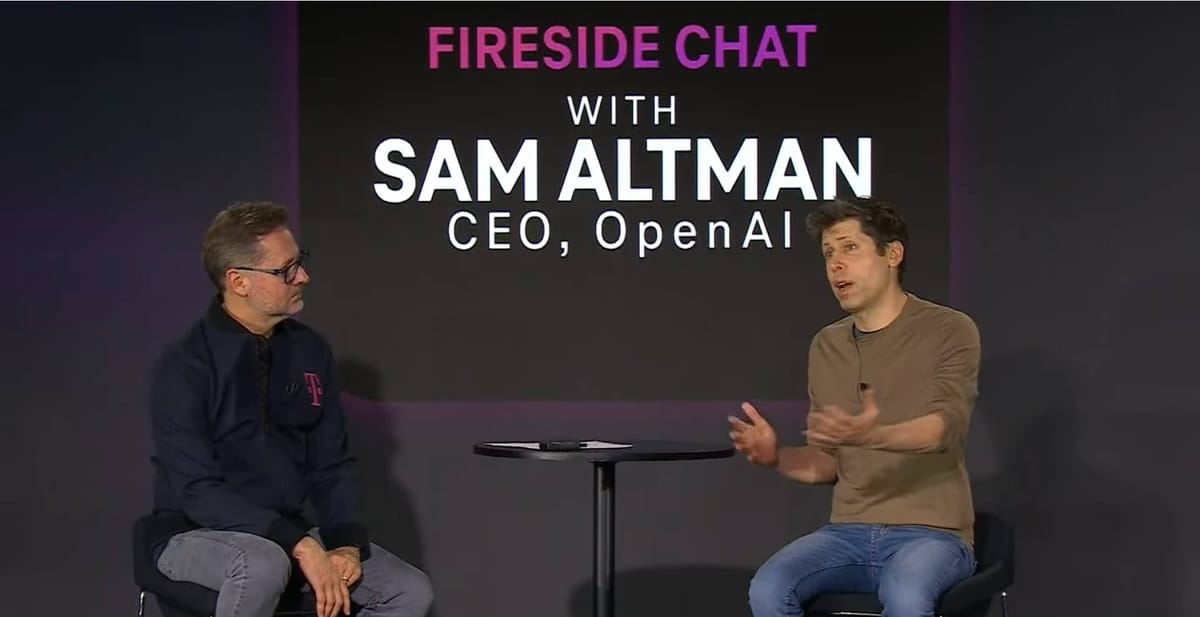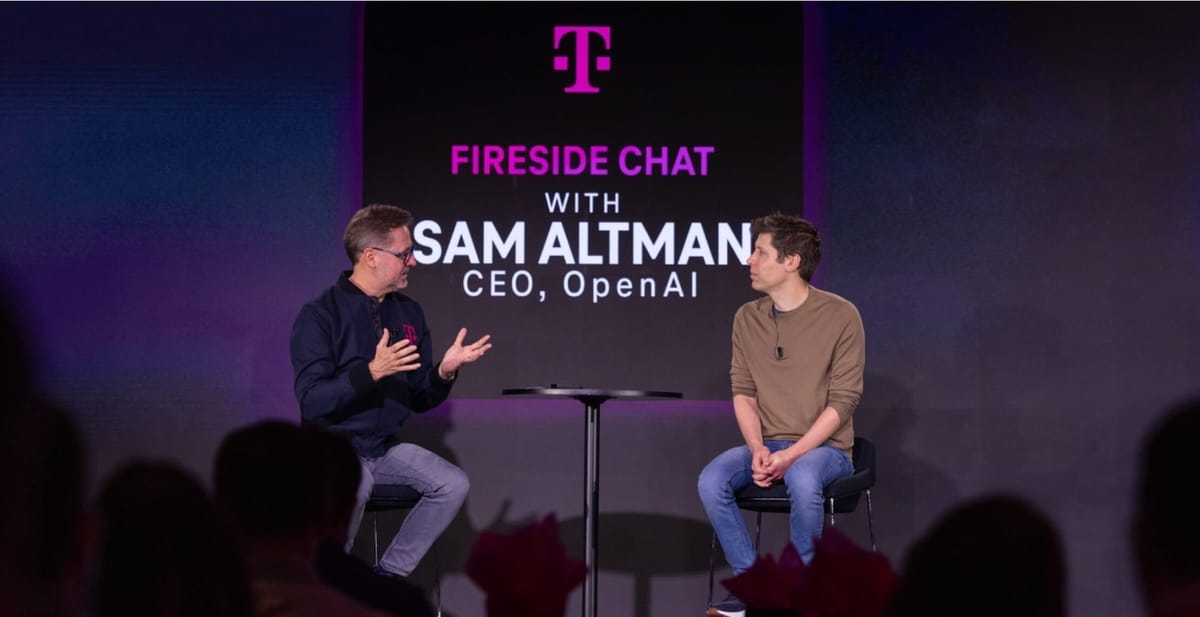
At T-Mobile’s Capital Markets Day 2024, a conversation between CEO Mike Sievert and OpenAI’s Sam Altman offered a revealing glimpse into the evolving AI landscape and the strategic moves shaping its future. Their fireside chat provided valuable perspective on how leading technology are thinking about the AI opportunity.
Altman, who leads arguably the most influential AI research lab in the world today, shared insights on OpenAI’s vision of how AI could reshape industries and accelerate human progress. Two weeks ago, the company introduced the OpenAI o1 family of “reasoning” models that marked a significant leap in capability from their GPT series. While GPT models excel in generating human-like text and handling straightforward tasks, the o1 models are engineered for advanced reasoning.
Unlike their GPT family, which excel at language processing, the o1 models bring advanced reasoning capabilities. "We knew what we really wanted was systems that could reason," Altman explained, describing O1 as the "GPT-2 stage" of a new AI paradigm.
This shift from language models to reasoning systems marks a pivotal moment in AI development. Altman outlined a five-level progression of AI capabilities:
- Chatbots (current state)
- Reasoners (emerging with O1)
- Agents
- Innovators (capable of new scientific discoveries)
- Organizations (capable of performing the work of an entire organization)
The jump from level one to two took a while, but Altman excitedly pointed out that level two will serve as a springboard to rapidly achieving level three: AI agents capable of autonomous decision-making and complex task execution.

The potential applications of these advanced AI systems are vast and varied. For example, T-Mobile is partnering with OpenAI to develop IntentCX, an AI-driven customer engagement model that aims to revolutionize support by deeply understanding and anticipating customer needs. This collaboration exemplifies how AI could transform entire business processes, not just augment existing ones.
Beyond telecommunications, Altman envisions AI as a catalyst for breakthroughs in healthcare and education. He foresees AI medical advisors democratizing access to quality healthcare globally and personalized AI tutors revolutionizing education.
Perhaps most intriguingly, Altman hinted at AI's potential to accelerate scientific discovery. "If AI can help us invent new stuff, cure diseases, come up with better energy sources... that'll be a huge win," he stated, positioning AI as a key driver of sustainable economic growth and societal progress.
However, this rapid advancement raises questions about data privacy and ethical AI development. Sievert ask Altman pointedly to address these concerns. In response, Altman emphasized that OpenAI does not train any of their models on API customer data. If companies want models fine-tuned with their data, OpenAI provides that as a separate service.
The rapid progression from chatbots to reasoning systems, and the anticipated leap to AI agents, signals a future where AI could reshape not just how businesses operate, but how we approach global challenges in healthcare, education, and scientific discovery.
However, as AI capabilities grow, so does the importance of responsible development and deployment. The T-Mobile-OpenAI collaboration serves as a real-world test case for how advanced AI can be integrated into business processes while maintaining data privacy and ethical standards.
As we move forward, the success of such partnerships and the realization of AI's potential will depend on continued innovation, thoughtful implementation, and a commitment to using these powerful tools to benefit society as a whole. The conversation between Sievert and Altman offers a glimpse into this AI-driven future—one that is rapidly approaching and full of both exciting possibilities and important challenges to navigate.


